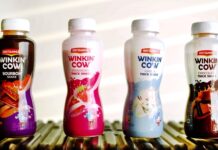Amongst an exclusive gathering held at New York’s Core Club, Uflex, one of the largest polymer plastic companies in the world, launched its plans designed to make the company part of a solution to keep plastic in the economy and out of the environment.
Project Plastic Fix aims to clean up plastic waste and convert it into products that have an economic value, thereby creating a circular economy. Uflex will eradicate plastic waste in four distinct ways through a mix of various methodologies it already practices, such as recycling plastic waste into granules further used to make over 10,000 household and industrial products like road dividers, outdoor furniture, dustbins and more; reprocessing plastic waste into fuel through a process called pyrolysis that emits zero greenhouse emission; collecting and converting plastic bottle waste into green up to 100% PCR grade packaging film Asclepius; and converting plastic waste into 100% biodegradable biomass.
It is the only project in the world that shall have the technology to make plastic recyclable as well as biodegradable. “We’re trying to achieve a world where you don’t see plastic where it isn’t supposed to be. As a plastics manufacturer, we’re trying to achieve that goal,” says Anantshree Chaturvedi, vice chairman, and chief executive officer, Flex Films International. “We believe that plastic is a problem that can be solved – it’s a global catastrophic risk that we can put behind us, but we have to engineer ourselves out of the problem. Although it’s a challenge, there are avenues, but technology alone isn’t enough. It will take a combination of technology, plastic, and people to solve this problem. Corporate choices and citizen behavior are part of the solution.”
The uniqueness of this project is that waste collection will be done by individuals directly engaged by Uflex, thus eliminating the “middleman” that typically would see the largest benefit from these transactions. Importantly, Project Plastic Fix contributes to poverty alleviation as the person responsible for collecting and depositing the waste, receives the maximum return. To this, Chaturvedi adds, “Waste collection is more about economic value. When we think of waste management as an unimportant thing, it becomes a burden on all those who have to deal with it.”
The initiative is being piloted in India, Poland, and Mexico, to begin with. Uflex will be looking at additional locations along the U.S. East Coast and in the United Kingdom later.
“I believe that while plastic cannot be removed from everyday living, it can be used responsibly. We can have a solution to use the plastic that the world has already manufactured and ensure that it gets recycled and reused in the economy, in a variety of ways, without affecting the ecology. Project Plastic Fix advocates the message that the problem of plastic is fixable, achievable and there will come a time when we will look back and not believe that this problem ever existed.”
Emphasizing that human behavior that adds to plastic waste menace, Chaturvedi concludes, “A change in the way the consumer thinks and behaves will make a lot of difference. With Project Plastic Fix, the only requirement from the consumer will be of waste sorting, while the rest can still be addressed with UFlex’ four different approaches. Just by making a little effort of segregating our waste before disposing of it, makes it a lot simpler for companies like ours to make sure all the plastic waste falls into the right place. But these changes by consumers need to be made today.”
IndiFoodBev — authentic, impactful and influential
An English-language food and beverage processing and packaging industry B2B platform in print and web, IndiFoodBev is in its third year of publication. It is said that the Indian food and beverage industries represent approximately US$ 900 billion in revenues which implies more than 20% of the country’s GDP. Eliminating the wastage on the farmside can help to deliver more protein to a higher number of the population apart from generating sizable exports. The savings in soil, seeds, water, fertilizer, energy and ultimately food and nutrition could be the most immense contribution that country is poised to make to the moderation of climate change.
To improve your marketing and grow sales to the food and beverage processing and packaging industry, talk to us. Our research and consulting company IppStar [www.ippstar.org] can assess your potential and addressable markets in light of the competition. We can discuss marketing, communication, and sales strategies for market entry and growth.
Suppliers and service providers with a strategy and budget for targeted marketing can discuss using our hybrid print, web, video, and social media channels to create brand recognition linked to market relevance. Our technical writers are ready to meet you and your customers for content.
The second largest producer of fruit and vegetables in the world is continuously expanding processing capacities and delivery systems with appropriate innovative technologies. We cover product and consumer trends, nutrition, processing, research, equipment and packaging from farm to thali. Get our 2025 media kit and recalibrate your role in this dynamic market. Enhance your visibility and relevance to existing markets and turn potential customers into conversations. Ask for a sample copy of our bi-monthly in print or our weekly IndiFoodBev eZine each Wednesday.
For editorial info@ippgroup.in — for advertisement ads1@ippgroup.in and for subscriptions subscription@ippgroup.in
Naresh Khanna – 10 February 2025
Subscribe Now











